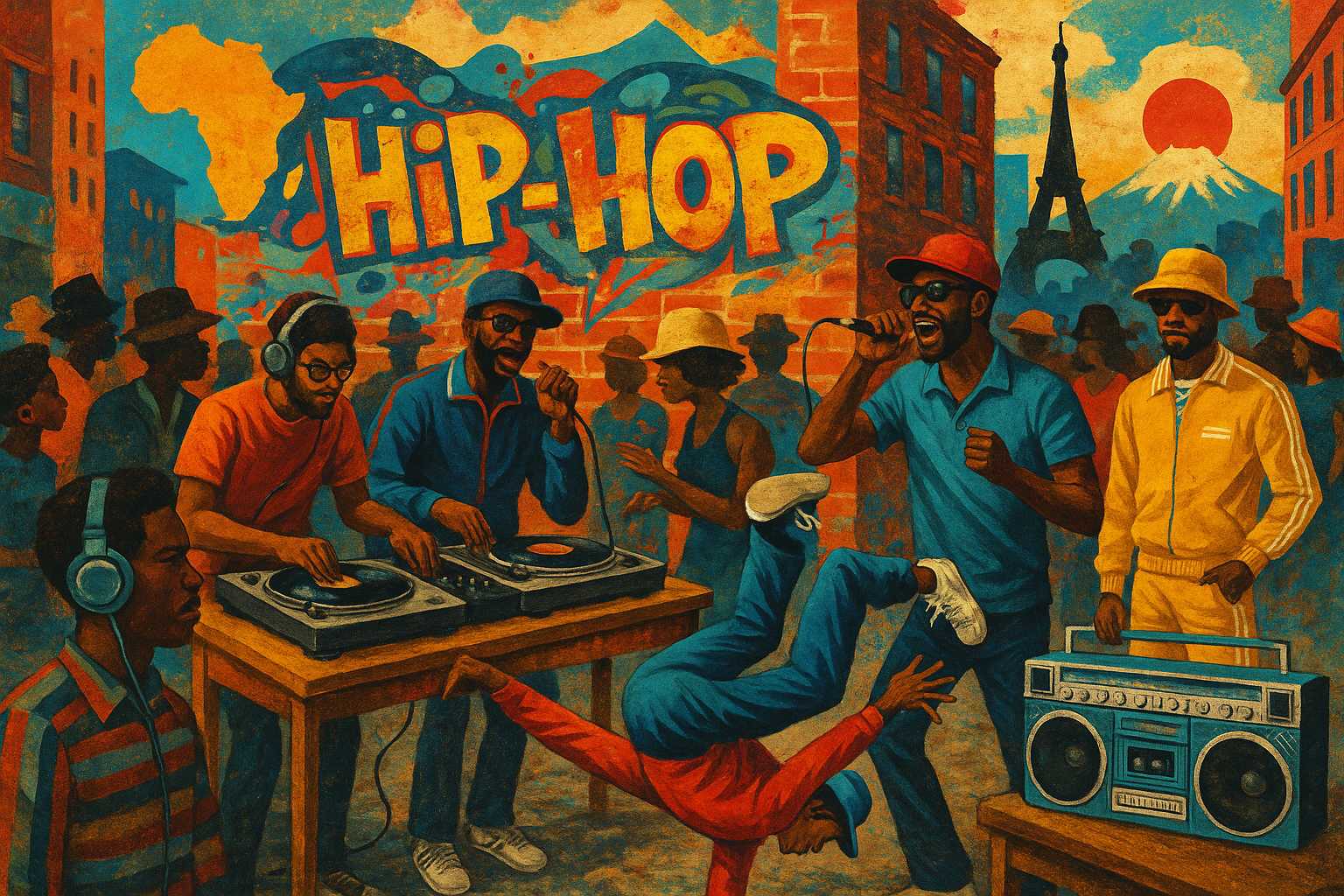Hello, fellow music lovers! I’m Theo – The Music Maestro, here to explore a genre that revolutionized not only the soundscape of the last half-century but also the very fabric of global culture: hip-hop.
Hip-hop emerged from the pulsating neighborhoods of the Bronx in the 1970s, born from block parties, ingenuity, and a need to be heard. Early pioneers like DJ Kool Herc, Grandmaster Flash, and Afrika Bambaataa didn’t just spin records – they created a new language of rhythm with scratching, sampling, and the iconic breakbeat. MCs soon followed, using rhyme to tell stories of struggle, joy, injustice, and aspiration.
What sets hip-hop apart from many other genres is its core value: authenticity. Voices that were once marginalized found power through the microphone. The genre quickly fused with street art, dance (breakdancing), and fashion, sparking a global movement.
But hip-hop’s impact transcends sound. The genre has become a tool for social commentary and empowerment. It’s resonated with communities in South Africa, France, Japan, and beyond, giving rise to local scenes while maintaining the spirit of resistance and reinvention. Hip-hop has inspired political change, fostered entrepreneurial empires, and introduced vernacular that permeated mainstream language.
In 2024, hip-hop remains a force for connectivity: cyphers unite strangers, beats cross continents, and collaborations craft new dialogues. From protest anthems to club bangers, hip-hop illustrates music’s unparalleled ability to unite, uplift, and transform societies. As we celebrate hip-hop, we celebrate the universal need for expression, justice, and community. That’s the real power of music – and the reason hip-hop changed the world.
Keep the beat alive, and keep listening.
—Theo, The Music Maestro


Leave a Reply